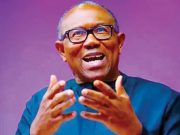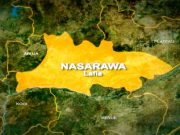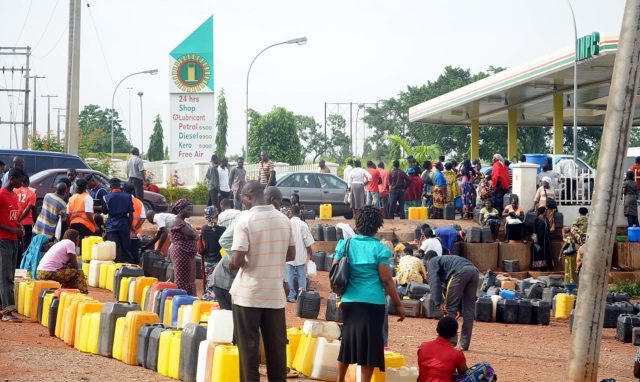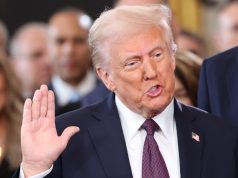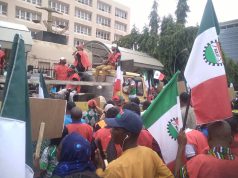Petrol shortage likely to worsen as NNPCL admits $6 billion in debt
There are signs that the price of premium gasoline (colloquially known as petrol) at petrol stations may increase as the Nigerian National Oil Company finally admits that it is facing difficulties due to $6 billion in debt. After weeks of denial, the NNPC on Sunday admitted that it is in debt to petrol suppliers by $6 billion, saying that it is facing difficulties due to the cost of supplying petrol.
In a statement by its Chief Corporate Communications Officer, Mr Olufemi Soneye, the state-owned power company subtly admitted that the debt is the cause of queues at petrol stations across the country, saying that it is affecting the sustainability of supply. Petrol shortages will get worse. NNPCL Admits $6 Billion Debt September 2, 2024 Queues at Petrol Stations From Dare Olawin There are signs that the price of premium gasoline (colloquially known as petrol) at petrol stations may increase as the Nigerian National Oil Company finally admits that it is in difficulties due to $6 billion in debt. After weeks of denials, NNPC on Sunday admitted that it owes a total of $6 billion to petrol suppliers, saying the cost of petrol supply has left it facing financial difficulties.
In a statement by its Chief Corporate Communications Officer, Olufemi Soneye, the state-owned power company made a subtle admission that debt is the cause of queues at petrol stations across the country, which it said are affecting the sustainability of supply. Clear Voice reported in July that Nigeria’s debt to gasoline suppliers has exceeded $6 billion, with NNPC struggling to make up the difference between fixed prices at the pump and international fuel costs. Evictions, drama and showdowns: The roller coaster ride of “No Loose Guard” season 9 continues. 0:00 / 1:01 A Reuters report said the state-run oil company ran into trouble earlier this year with over $3 billion in late payments for PMS. Traders said the company has yet to pay for some of its imports since January, and the debt continues to pile up. Under contract terms, NNPC is required to pay within 90 days of delivery.
“The only reason dealers are putting up with this is because they are being paid $250,000 per month (per load) as compensation for late payments,” an industry source said. Traders said Nigeria’s PMS purchase tenders have shrunk since June. Three more companies have stopped supplying PMS to NNPC, up from two in July, bringing the total to five, it is said, unpaid. But Sony denied in August that NNPC owed $6.8 billion to international oil traders. “NNPC Ltd does not owe any international traders the total amount of $6.8 billion. In oil trading, credit is traded and therefore it is normal for balances to arise at certain times. However, NNPC Ltd maintains many open trade credit lines with multiple traders through its subsidiary NNPC Trading.
“The company is meeting its obligations on a first-in, first-out basis,” he said. NNPC cited various reasons for the ongoing fuel crisis, including bad weather and the inability of ships to unload their cargoes, but no matter what measures were taken, it was unable to eliminate queues at fuel stations. The company on Sunday reversed course and admitted that it was facing financial constraints. “NNPC Ltd confirms recent reports in national newspapers regarding the company’s significant indebtedness to its petrol suppliers. This financial burden is putting the company under significant pressure and posing a threat to the sustainability of fuel supply,” Soneye said in a statement, adding that “NNPC Ltd is facing financial burdens due to PMS supply costs, which are affecting the sustainability of supply”.
He added that the company is working with relevant government authorities and other stakeholders to maintain a stable supply of petroleum products across the country. “In accordance with the Petroleum Industry Act, NNPC Ltd remains committed to acting as a supplier of last resort and ensuring national energy security. “We are actively working with the relevant authorities and other stakeholders to ensure a stable supply of petroleum products to the country.” As Nigerians continue to complain about the ongoing fuel crisis since July, NNPC’s sudden admission of dissent to a claim it has denied on several occasions has raised speculation that the federal government may stop paying what it calls a “deficit” on imported petrol.
Clear Voice has learnt that the company may be considering the only way out of its debt problems – to stop paying a deficit that may no longer be sustainable. If this happens, the managers said, petrol prices would rise to over 1,000 naira and interested authorised dealers would be able to import petrol, breaking the NNPC monopoly. Recently, NNPC was the only petrol importer to admit that the federal government was subsidising it, setting the current price of PMS recently set by traders at 1,117 naira per litre. NNPC denied that it had been paying fuel subsidies to traders for the past nine years, but said the government had allowed them to sell at prices below landed cost. The company’s Chief Financial Officer, Alhaji Umar Ahiya, stated this in Abuja when the company launched its 2023 report.
“For the last eight to nine years, NNPC has not paid a single penny as subsidy to anyone. No one has even received a kobo in the name of subsidy from NNPC. Not a single marketer has received money as subsidy from us. “What has happened is that the government is telling us to sell PMS, which is imported at a certain cost price, at half price. So the difference between the delivery price and this half price creates a deficit. “And the Federal Government and NNPC have to compensate for that. “Sometimes they give us money to ensure that the money doesn’t go to marketers as subsidy,” he said. He explained that credit lines are widely used by downstream companies based on the global trading system. He added that the company has in the past entered into open credit agreements with installment contracts with PMS suppliers.
Petrol scarcity set to worsen as NNPCL admits $6bn debt









